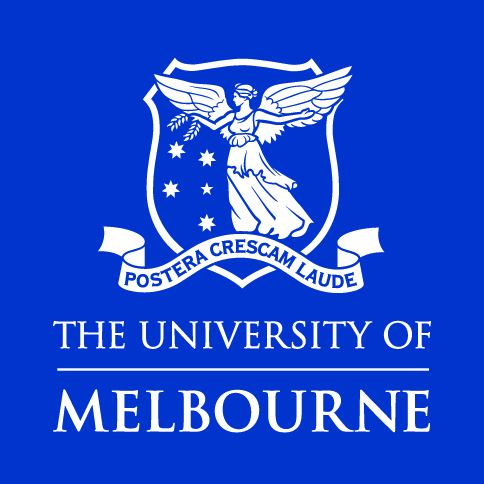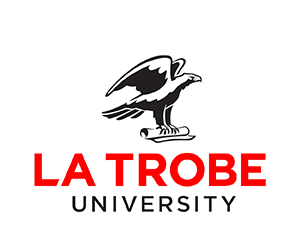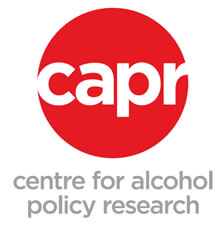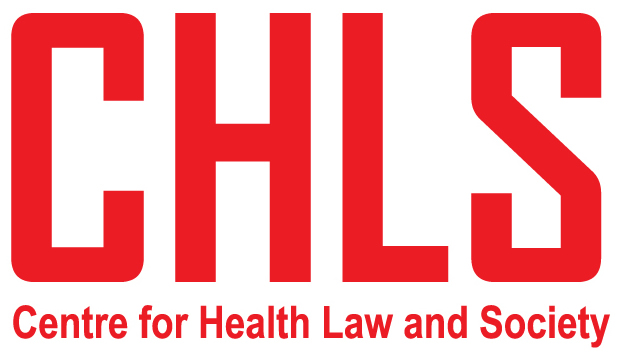Public Health and Global Governance of Alcohol
Thematic Meeting of the Kettil Bruun Society
30 September 2019 - 3 October 2019
Level 2, La Trobe University City Campus
360 Collins Street, Melbourne, Australia




This meeting sought to examine how global and regional governance currently contributes -- and could contribute more in the future -- to the control of alcohol for public health purposes. The meeting also investigated how global and regional governance arrangements, especially through trade and investment law, limit the domestic regulation of alcohol, and options for remedying this situation. Contributions relevant to these topics were sought from those involved in social, political science and policy research and in public health legal research.
Background to the Meeting
Urgent action is needed by governments to control the marketing, labelling and availability of alcohol given the growing evidence about the burden of disease and premature mortality associated with alcohol consumption. But alcohol needs to be seen not just as a domestic issue, but as a global health problem. The sources of the harm (especially in the form of global alcohol industry conduct) cross borders, nearly all countries experience a range of harms from alcohol consumption, and the potential solutions to these problems increasingly require international innovation and solidarity through global governance. In this context, ‘global governance’ refers to the laws, rules, norms, institutions, processes and practices of state and non-state actors across national borders relating to alcohol.
Alcohol is the great exception among problematic psychoactive substances in not being covered by any public health-oriented international drug control conventions. The only international body with a continuing concern with alcohol issues, the World Health Organization (WHO), has expressed good intentions in the Global Strategy to Reduce the Harmful Use of Alcohol and in the Global Action Plan for the Prevention and Control of NCDs 2013-2020. The WHO is singularly well-placed to improve the global governance of alcohol, with its scientific and technical expertise and its range of instrument-making powers. But it also lacks resources for effective action, with fewer than a handful of staff committed to the area.
At the same time, alcohol is a substance of concern to other international organisations, including the United Nations General Assembly (which included alcohol in the Sustainable Development Goals, targets 3.4, 3.5 and 3.6 under Goal 3) and the Food and Agriculture Organization (which is considering an alcohol labelling standard for the first time). But institutional attention is sporadic and the links with public health efforts to reduce the harms associated with alcohol consumption have not been well drawn to date. The potential for other international organizations, with their diverse agendas, governing instruments, institutional processes and membership dynamics, to further the public health governance of alcohol has not been explored.
This work is urgent given the growing encroachment of international and regional trade agreements and disputes on national and subnational alcohol control powers. Scholarship has been limited about the major global factors that limit the ability of national and local governments to control markets for alcohol. Factors include the growing concentration and globalisation of alcohol producers and distributors, particularly in beer and spirits, but also increasingly in wine; the increasing success of industry efforts to develop and use trade agreements and dispute settlement mechanisms to limit governmental control efforts; and the absence of any international public health-oriented alcohol control agreement or other instrument which could support interventions at the domestic level and assist the defence of alcohol control measures in trade and investment disputes, as the Framework Convention on Tobacco Control has done to some extent in disputes about tobacco.
Invited speakers
- Douglas Bettcher, until recently the Director of Prevention of Noncommunicable Diseases at the World Health Organization
- Sally Casswell, Director of SHORE, Massey University, New Zealand, and President of the Global Alcohol Policy Alliance, as well as of the Kettil Bruun Society
- David Jernigan, Department of Health Law, Policy & Management, Boston University, a leading researcher on advertising regulations and on the structure of the alcohol industry
- Paula O’Brien, Melbourne School of Law, who has analysed industry-backed complaints concerning alcohol labelling requirements and their resolution in the Technical Barriers to Trade Committee of the World Trade Organization
- Jane Kelsey, Faculty of Law, University of Auckland, an expert on provisions concerning the handling of public health issues in trade agreements
- Jonathan Liberman, Director of the McCabe Centre on Law and Cancer, with expertise in the history of the Framework Convention on Tobacco Control
- Gian Luca Burci, Graduate Institute of International and Development Studies (IHEID), Geneva, and former legal counsel of the World Health Organization
Generously sponsored by



Conference Program
2019 Public Health and the Global Goverance of Alcohol Conference Program
Generously sponsored by



A list of papers being presented
Guidelines for Authors/Speakers, Chairs and Discussants
Authors/Speakers Paper Submission
Generously sponsored by



Publications Resulting from the Conference
| Drug and Alcohol Review (2021) | |||
|---|---|---|---|
| Robin Room, Deborah Gleeson and Mia Miller | Introduction to special section: Alcoholic beverages in trade agreements: Industry lobbying and the public health interest | ||
| Mia Miller, Claire Wilkinson, Robin Room, Paula O'Brien, Belinda Townsend, Ashley Schram and Deborah Gleeson | Industry submission on alcohol in the context of Australia's trade and investment agreements: a content and framing analysis of publicly available documents | ||
| Sparsha Janardhan | Harnessing trade and investment agreements to promote public health | ||
| Deborah Gleeson and Paula O'Brien | Alcohol labelling rules in free trade agreements: advancing the industry's interests at the expense of the public's health | ||
| Journal of Studies on Alcohol and Drugs (forthcoming 2020) | |||
|---|---|---|---|
| Julia Stafford, Kypros Kypri and Simone Pettigrew | Industry actor use of research evidence: Critical analysis of Australian alcohol policy submissions | ||
| Gianna Gayle Herrera Amul | Alcohol advertising, promotion and sponsorship: A review of regulatory policies in ASEAN | ||
| Jeff Collin | Taking steps towards coherent global governance of alcohol: The challenge and opportunity of managing conflict of interest | ||
| European Journal of Risk Regulation (forthcoming 2021, all published in early view) | |||
|---|---|---|---|
| Robin Room | Global Intergovernmental Action to Minimise Alcohol Problems: The 'Back Story' | ||
| Robin Room and Jenny Cisneros Örnberg | A Framework Convention on Alcohol Control: Getting Concrete about its Contents | ||
| Claire Slattery | Using Human Rights Law to Progress Alcohol Control | ||
| Patricia Hepworth, Lisa Schölin and Sarah Ward | Alcohol Labelling in the Global Food System: The Progress and Implications of Recent Work in the Codex Committee on Food Labelling | ||
| Paula O'Brian | Missing in Action: The Global Alcohol Strategy and the WTO | ||
| Gian Luca Burci | A Global Legal Instrument for Alcohol Control: Options, Prospects and Challenges | ||
| Suzanne Zhou | An International Normative Instrument for Alcohol Control - Lessons from the WHO FCTC for its Structure, Design and Status | ||
| Jürgen Rehm, Sally Casswell, Jakob Manthey, Robin Room & Kevin Shield | Reducing the Harmful Use of Alcohol: Have the Targets Been Met? | ||
| Single Papers | |||
|---|---|---|---|
| Adam Bertscher, Rohrs, S. and London, L. ‘A human rights analysis of South Africa’s Control of Marketing of Alcoholic Beverages Bill’, Homa Publica: International Journal of Human Rights and Business (forthcoming). | |||
| Connie Hoe, ‘Drink, but Don't Drive? Alcohol Industry's Involvement in Global Road Safety’, (2020) Health Policy and Planning (forthcoming). | |||
| Jane Kelsey, ‘How Digital Trade Agreements Constrain Regulatory Autonomy: The Case of the Regulating Alcohol Marketing in the Digital Age’, (2020) 29 New Zealand Universities Law Review 153-179 | |||
| Kate Vallance, Alexandria Vincent, Nour Schoueri-Mychasiw, Tim Stockwell, David Hammond, Thomas K. Greenfield, Jonathan McGavock and Erin Hobin, ‘News Media and the Influence of the Alcohol Industry: An Analysis of Media Coverage of Alcohol Warning Labels With a Cancer Message in Canada and Ireland’, (2020) 81 Journal of Studies on Alcohol and Drugs 273-83 (open access). | |||
| Belinda Townsend, Sharon Friel, Ashley Schram, Fran Baum and Ronald Labonte, ‘What Generates Attention to Health in Trade Policy Making? Lessons From Success in Tobacco Control and Access to Medicines: A Qualitative Study of Australia and the (Comprehensive and Progressive) Trans-Pacific Partnership’, (2020) International Journal of Health Policy and Management (early view)(open access). |
- The meeting is organised by the Centre for Alcohol Policy Research and the Centre for Health Law and Society at La Trobe University and the Melbourne Law School at The University of Melbourne.
- The organising committee for the meeting is:
- Professor Robin Room, Centre for Alcohol Policy Research, La Trobe University
- Dr Deborah Gleeson, Department of Public Health and Centre for Health Law and Society, La Trobe University
- Trish Hepworth, Foundation for Alcohol Research and Education
- Paula O’Brien, Melbourne Law School, The University of Melbourne
- Clare Slattery, McCabe Centre for Law and Cancer
- Please direct queries about the meeting to kbs-2019@unimelb.edu.au.
Generously sponsored by


